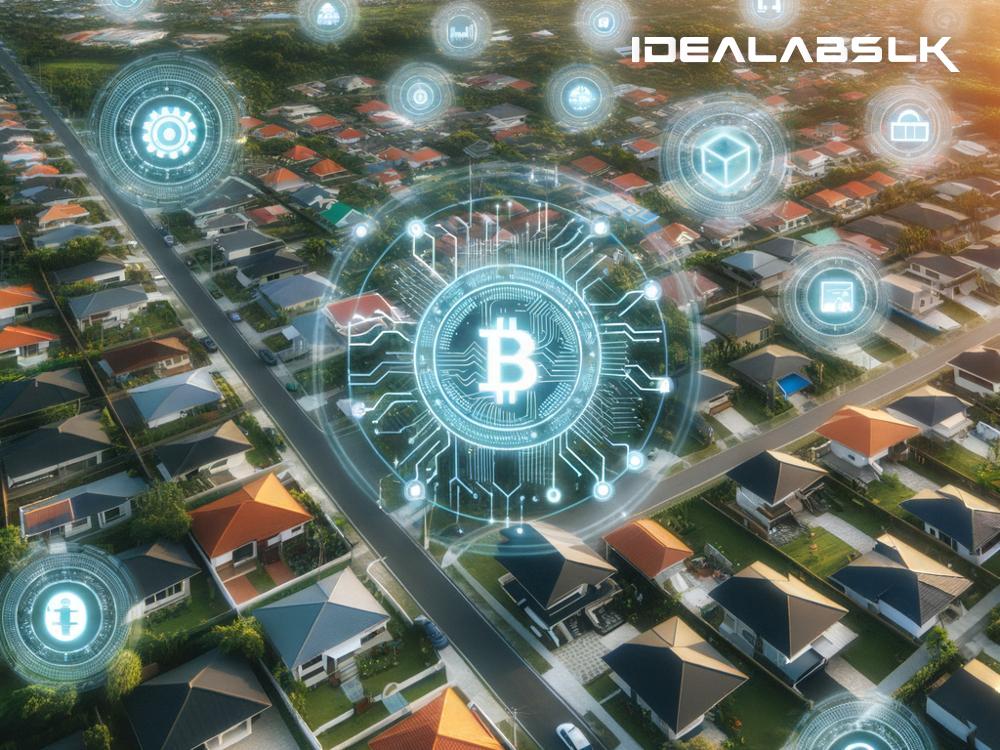Title: How Blockchain Is Transforming Data Sharing in the Real Estate Industry
In today's digital era, where technology intertwines with daily activities, the real estate sector is also catching up with current trends, especially in the realm of data sharing. One of the most revolutionary technologies that's beginning to reshape this industry is blockchain. Despite being commonly associated with cryptocurrencies like Bitcoin, blockchain's potential stretches far beyond, promising to offer the real estate industry a new way to share and manage data.
At its core, blockchain is a type of database that stores information in a way that makes it nearly impossible to hack or cheat the system. Information, or "blocks", is chained together in chronological order, creating a transparent and unchangeable history of transactions. This feature is what makes blockchain particularly intriguing for real estate data sharing. But what does this really mean for the industry, and how can both professionals and clients benefit from it?
Simplifying Transactions
Real estate transactions are renowned for their complexity, involving multiple parties, extensive paperwork, and a significant amount of time. Blockchain can streamline this process by providing a single, immutable ledger for all aspects of a transaction, from property listings to finalizing sales. This reduces the need for middlemen, such as lawyers and brokers, which in turn can lower transaction costs and speed up the process.
Improved Transparency and Security
In the realm of real estate, trust is paramount. However, traditional methods of data sharing are often fraught with risks, including fraud and errors in public records. Blockchain's inherent transparency and security can mitigate these issues. Since each transaction is permanently recorded and easily verifiable, all parties involved can trust in the accuracy of the information. This reduces the potential for disputes and increases overall confidence in the system.
Enhanced Data Management
Real estate involves a vast amount of data, from property listings and historical data to legal documents and contracts. Managing this data can be a logistical nightmare, especially amidst the growing concerns over privacy and data protection. With blockchain, data is decentralized, meaning there is no single point of control or failure. This not only improves data security but also enhances accessibility, as authorized parties can access required information without unnecessary delays or bureaucratic hoops.
Tokenization of Real Estate Assets
One of the most exciting prospects of blockchain in real estate is the tokenization of assets. This process involves turning the value of a real estate asset into a digital token on the blockchain. Essentially, it enables property owners to sell shares in their property, much like stocks. This could open up the real estate market to a broader array of investors, including those who may not have been able to afford entire properties before. Moreover, it can provide liquidity in what is traditionally considered an illiquid market.
Challenges and Considerations
Despite the potential benefits, integrating blockchain into real estate data sharing is not without its challenges. The technology is still relatively new and evolving, and there is a significant lack of understanding and trust among the general public. Regulatory hurdles are also a concern, as current laws may not accommodate the new paradigms introduced by blockchain.
Moreover, the shift to a blockchain-based system requires substantial investment in technology and training. Real estate businesses must weigh these costs against the potential long-term benefits of enhanced efficiency, security, and transparency.
In Conclusion
As we move forward, the integration of blockchain in real estate data sharing seems inevitable. Its ability to streamline transactions, enhance security and transparency, and improve overall data management holds the promise of transforming the industry. However, widespread adoption will require overcoming significant challenges, including regulatory compliance, public perception, and initial setup costs.
Nevertheless, those in the real estate industry should begin to familiarize themselves with blockchain technology. Being proactive now can place businesses at the forefront of this transformation, offering them a competitive edge in a market that's increasingly driven by innovation and efficiency. The journey of integrating blockchain into real estate is just beginning, and it's an exciting time for everyone involved in this sector.

